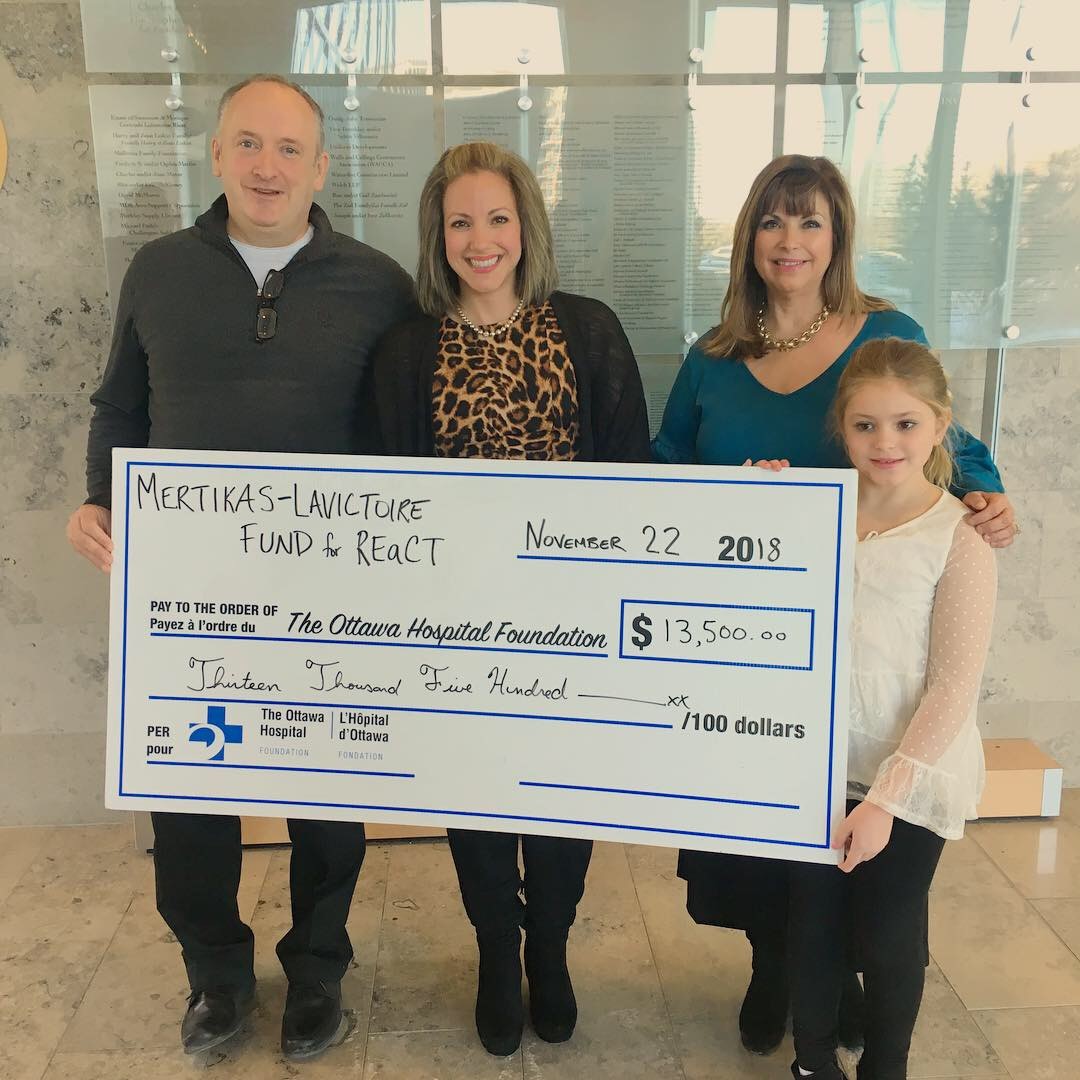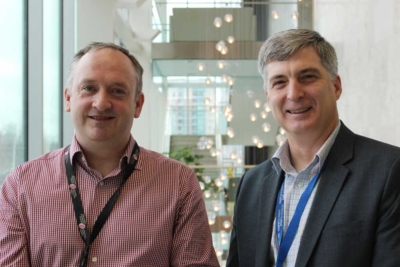The study that is changing breast cancer treatment around the world
There is such deep love in Gina Mertikas-Lavictoire’s eyes when she looks at her three young children. But there is something else, too: fear. Fear that one or even both of her daughters will develop the same aggressive breast cancer she’s had. So, when an opportunity arose to participate in a clinical trial through The Ottawa Hospital’s REthinking Clinical Trials (REaCT) program, she readily agreed.

“I’m really big on clinical trials,” says Gina, “so I had no hesitation helping…and I trusted Dr. Clemons.”
Dr. Mark Clemons, scientist and oncologist at The Ottawa Hospital, was Gina’s medical oncologist and also the one who launched REaCT in 2014, together with Dr. Dean Fergusson, senior scientist and Director of The Ottawa Hospital’s Clinical Epidemiology Program, and others. The purpose of REaCT was to make enrollment in clinical trials easier for cancer patients. The more patients who enroll, the more that can be learned, which leads to better treatments and practices.
“When you think the most common killer is now cancer,” says Dr. Clemons, “and only 3% of patients are involved in trials, it’s quite shocking. Patients are desperate to help, not just for themselves but for their children. They want their children to have better treatments if this happens to them.”
Study focused on safer care, less cost, fewer hospital visits
Gina participated in a study focused on a drug called filgrastim, which boosts the production of infection-fighting white blood cells. People with early-stage breast cancer often receive daily injections of the drug at the start of every cycle of chemotherapy, anywhere from five doses to seven to 10. Many cancer patients struggle with both the cost of the drugs, at more than $200 per injection, and the side effects.
“This is an incredibly expensive drug,” says Dr. Clemons, “but often patients feel horrible with it. It makes you feel miserable.”
Up to this point, there had been conflicting debate on how many injections worked best. So, after reviewing all the evidence and surveying doctors and patients, Dr. Clemons and his colleagues launched a clinical trial to find out, enrolling 466 patients from seven Canadian cancer centres.
Gina was among those patients, giving herself a daily shot of filgrastim 10 days in a row after each of her three rounds of chemotherapy.

“I’m so thankful I was part of this trial”
Gina says she had no hesitation volunteering to be part of this trial, “because I’m able to help future breast cancer patients,” adding, “We are helping the future generation with every trial we do, so I’m happy they asked me.”
She’s happy, too, with the results of the study, published in Annals of Oncology, which have helped change care globally. Researchers discovered that five doses of filgrastim are just as good as seven to 10 doses in terms of preventing infections. And when they looked at treatment-related hospitalizations, they found that five doses are better: patients who received five doses had a 3.3 percent chance of hospitalization for side-effects compared to 10.9 percent for people who had seven to 10 doses, a difference of more than three-fold.
“I believe this is how we will find the cure for cancer.”
– Gina Mertikas-Lavictoire
Results change global standard of care

“This study is already changing practice around the world,” says Dr. Clemons. “It is making our patients healthier and giving them more time with loved ones by reducing unnecessary hospital visits. It is also saving our healthcare system millions of dollars every year.”
“This study is already changing practice around the world. It is making our patients healthier and giving them more time with loved ones.”
– Dr. Mark Clemons
The REaCT team wants to take this research one step further to find out whether even fewer doses can be prescribed. They have just applied for funding to start that study and are focused on several other clinical trials as well. With more than 2,700 patients participating in 17 trials in 15 centres across Canada, REaCT is now the largest cancer clinical trials program of its kind in the country.
“By thinking differently and using innovative approaches, we are efficiently answering some of the most important questions for patients and for our healthcare system,” says Dr. Fergusson. “The Ottawa Hospital is a leader in this kind of innovative research and our patients are among the first to benefit.”
Gina knows that well. She’s participated in two other clinical trials through REaCT and has become an ardent fundraiser, securing more than $25,000 for cancer research at The Ottawa Hospital.
“I believe this is how we will find the cure for cancer,” she says, “so we really need to continue to support this avenue, to support the next generation of cancer patients.”
“The Ottawa Hospital is a leader in this kind of innovative research and our patients are among the first to benefit.”
— Dr. Dean Fergusson
The Ottawa Hospital is a leading academic health, research, and learning hospital proudly affiliated with the University of Ottawa.




